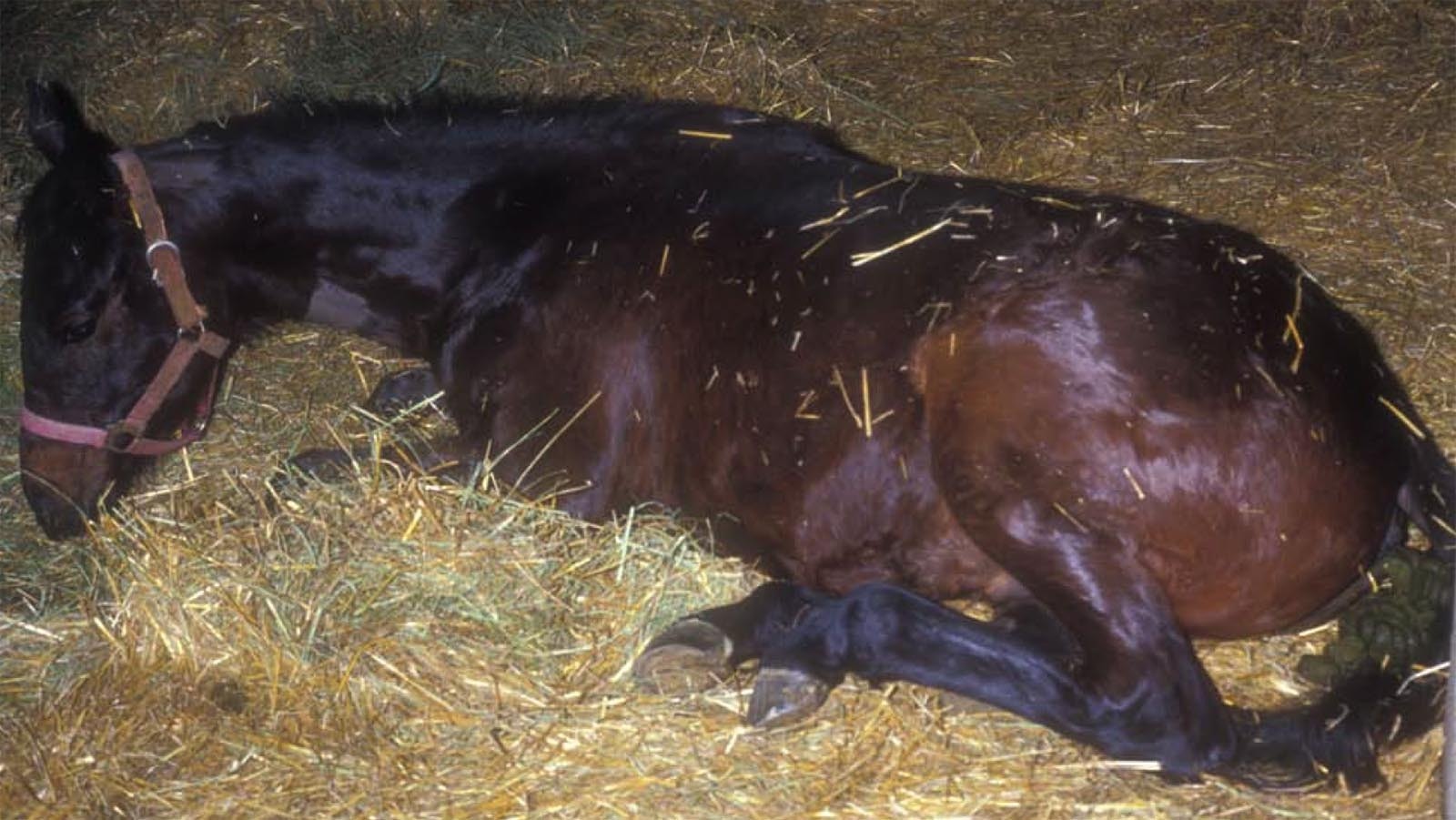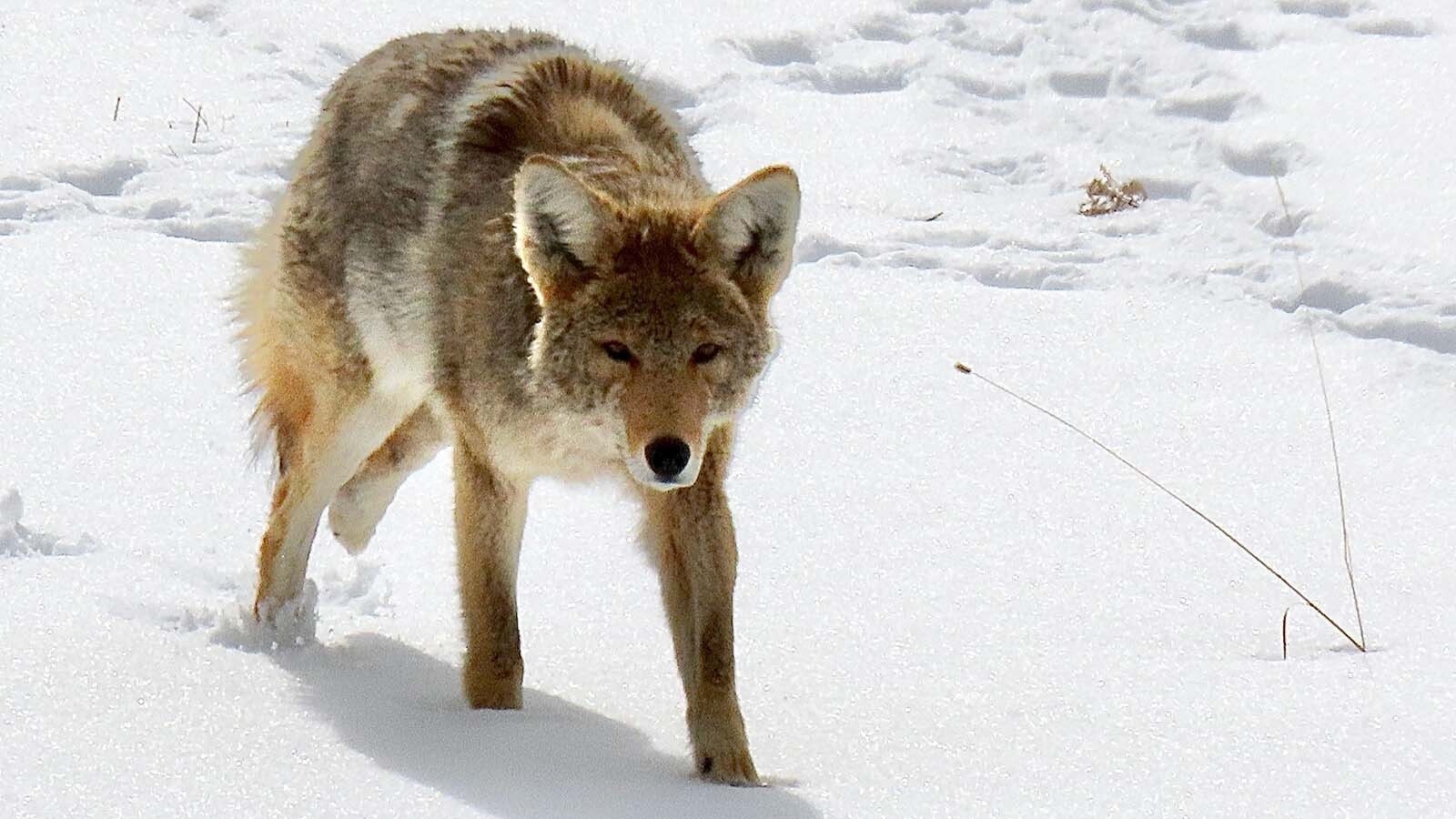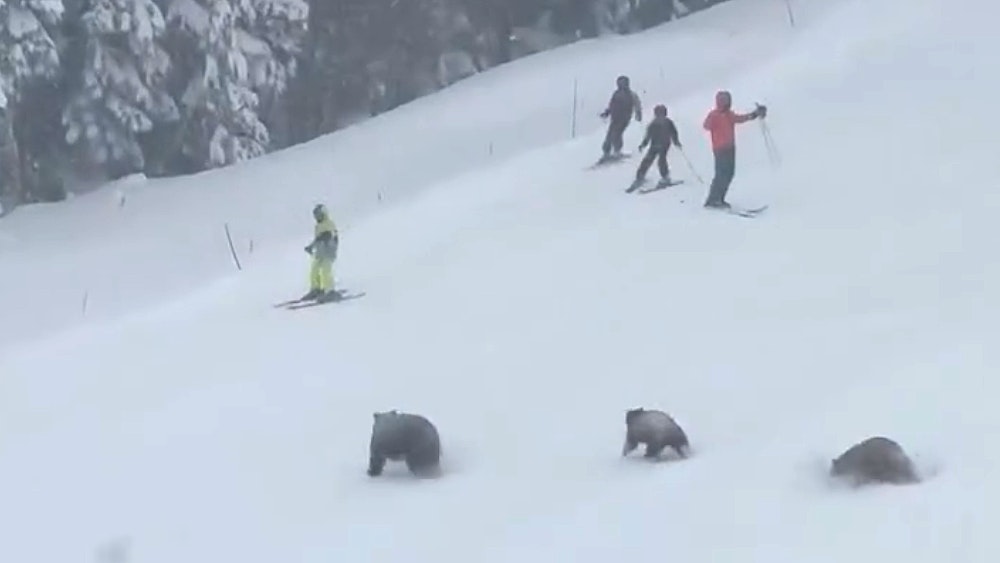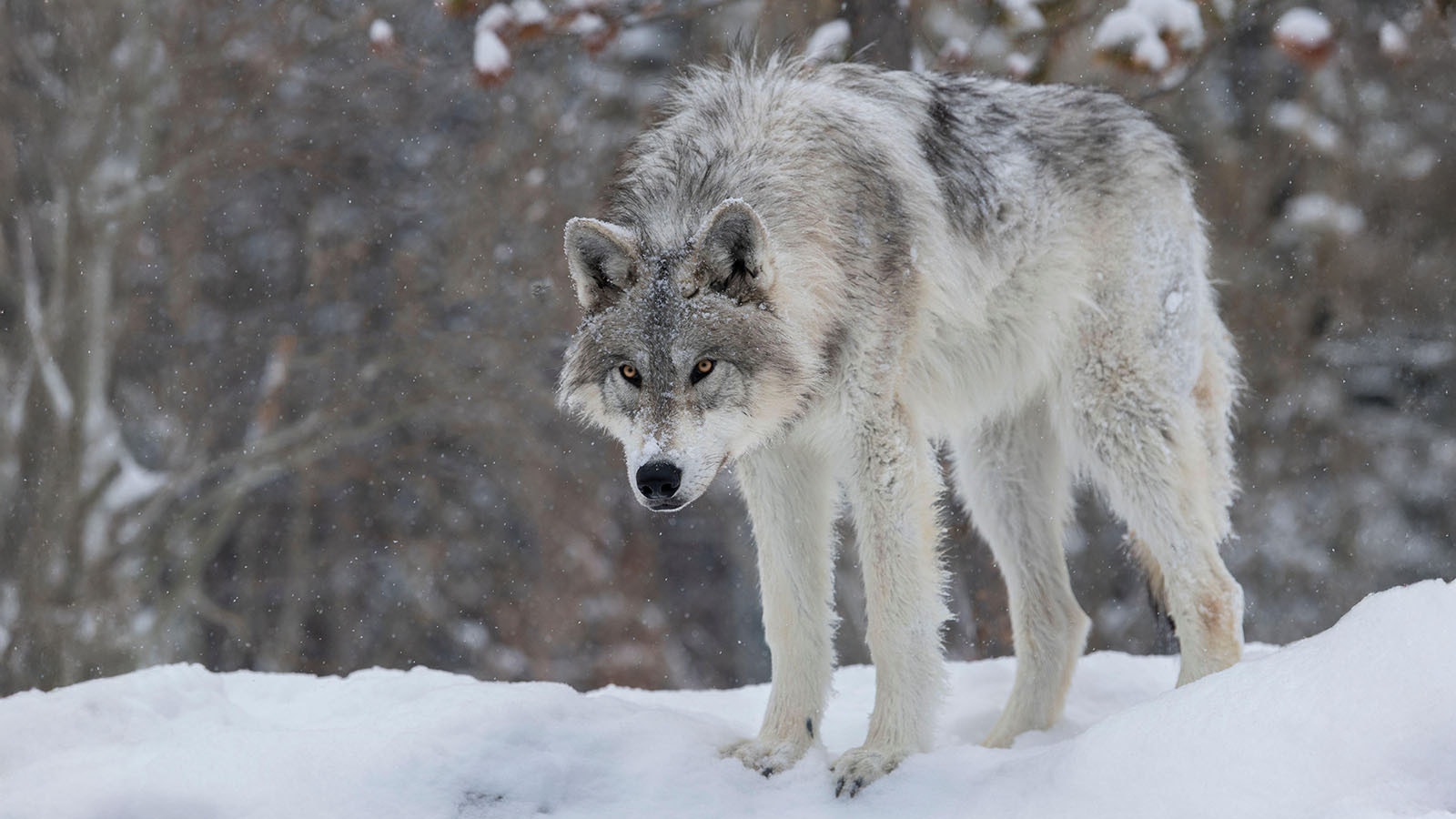Horse owners across the nation have been spooked by the confirmation of a serious — and potentially lethal — equine virus in four U.S. states, with more confirmed cases expected within the next week.
There are no confirmed cases in Wyoming yet, but horses in the Cowboy State have been exposed within the last week.
Equine herpesvirus-1 (EHV-1) and EHV-4 start as respiratory illnesses but can progress to a serious and fatal neurological condition, equine herpes myeloencephalopathy (EHM).
The mortality rate of EHM can be as high as 75%, and horses that survive require months of intense care and rehabilitation.
The initial outbreak began at the World Championship Barrel Racing Finals in Waco, Texas, on Nov. 5–9, where between 800 and 1,000 horses from across the nation were assembled.
Several cases of two EHV variants and EHM have been confirmed in Texas, Louisiana, and Oklahoma in the last week.
"As of Friday, there are two confirmed cases in Texas, two in Oklahoma, three in Louisiana, and there might be another case on the East Coast in Maryland," said Russell Nemetz, owner of the Western Ag Network. "We don't want to say the sky is falling, so to speak, but the whole industry is jumping on this ASAP."
Joe Stricklin, a veterinarian in Greeley, Colorado, told Cowboy State Daily that "a confirmed case (of EHM) showing early neurological signs" has been confirmed in Colorado.
That horse was exposed to the virus in Waco and later attended events in Casper and Wheatland.
That means many Wyoming horses have, in all likelihood, already been exposed to the virus.
'Stay Home'
"We're just at the tip of finding out how far and wide this virus has spread," Stricklin said. "It takes anywhere from four to 14 days for horses to start showing symptoms, so we're in that period where (infected horses) are just starting to show symptoms."
Nemetz said he's "not any way, shape, form or fashion an expert in veterinary medicine," but he urges Western horse owners to take an abundance of caution and monitor their horses.
"Let's stay vigilant," he said. "We want to create awareness that these viruses are out there, and if you see any signs and symptoms in your horse, it might be worth a call to your veterinarian."
Stricklin has a simple but urgent message to horse owners nationwide.
"Stay home," he said. "I'm not going to tell anyone to quit living, but this isn't a common, everyday rhinovirus. It's a variant that has some deadly potential to it."

Spread, Symptoms, And Severity
According to Stricklin, EHV-1 and its variants are notoriously easy to spread. It doesn't take much for the virus to be transmitted from horse to horse.
"The most common method of transmission is going to be horse to horse, nose to nose," he said. "But it can also spread if one horse is shedding, if they're tied beside each other, rode in the same trailer, or drank out of the same bucket."
Humans can also spread EHV-1.
The virus isn't zoonotic, so it can't infect humans, but humans can unknowingly carry and spread it.
"If a horse sheds the virus onto someone's clothes, and that person goes to another horse, the virus can be transmitted to that horse," he said. "It's just like a cough or cold. Viral moisture particles can spread the virus from one horse to the next."
Initial symptoms of EHV-1 include nasal discharge and a fever above 101.5 degrees. Symptoms that EHV-1 has progressed into EHM include weakness and stumbling in the hind limbs, difficulty urinating or defecating, "dead tail," and dribbling urine.
"It progresses to the point where horses can get down and can't get up," Stricklin said. "In some cases where this variant has surfaced, horses have died within 24 hours of showing the neurological symptoms."
Stricklin described the current outbreak as "moderately serious," but he expects an increase in cases in several states over the next 10 days.
He is already monitoring five horses in Colorado that "are either running high temps or starting with discharge from noses" after confirmed exposure to the infected horse from Waco.
"The next 10 days are going to give us a huge outlook into what we can expect for the next month," he said. "If people can take it easy for the next week, we'll know if it's blowing up exponentially or we're getting it under control."
Wyoming Exposed
Wyo Blu Equine Vet Clinic in Wheatland reports that horses that attended barrel races at Riata Ranch in Cheyenne on Nov. 15 and J Bar C in Wheatland on Nov. 16 were exposed to at least one of the confirmed cases of EHV-1.
Horses of concern also attended a rodeo in Casper around the same time.
Stricklin confirmed that Colorado's first confirmed case of EHM attended events in Casper and Wheatland.
It was infected at the World Championship Barrel Racing Finals in Waco, but attended the Wyoming events before showing symptoms.
"That horse started showing neurological symptoms on Thursday night," he said. "They were mild at that time, but I haven't spoken to the people treating that horse since then."
Horses exposed in Casper, Cheyenne, and Wheatland might not be showing any symptoms yet.
Concerned horse owners should begin looking for the initial symptoms, nasal discharge and fever, taking their horse's temperature twice a day, and contacting their local veterinarian immediately.
What To Do
Nemetz said EHV-1 isn't necessarily fatal, provided it's caught and treated as soon as possible.
"Most of these horses recover, if they receive veterinary care promptly and EHV-1 doesn't progress into EHM," he said. "It does require some strict monitoring and isolation, but as long as you can keep it EHV-1 from progressing, a lot of these horses recover and live."
The College of Veterinary Medicine at the University of Missouri recommends that any horse that attended the Waco event or any venue with known EHV-1/EHM cases should enter strict quarantine.
Trailers and equipment should be disinfected, and horses shouldn't be released from quarantine until 14 days after their last known exposure and a negative test.
There is a vaccine for EHV-1, but exposed or infected horses shouldn't be vaccinated. Non-exposed horses should receive an EHV-1 booster if they have not been vaccinated within three months.
"It's not a death sentence if it's detected and treated early enough," Nemetz said. "The trick is not to let it go, or think that it's going to get better on its own. Pick up the phone, text your veterinarian, and get them out to check on that animal right away."
Stricklin said the last major outbreak of EHV-1 happened in Ogden, Utah, in 2011. It spread to at least eight states and killed several horses.
"It's something that people need to take seriously," he said.
Stay Home
EHV-1 outbreaks are serious, especially at large events like the World Championship Barrel Racing Finals.
The key to avoiding exposures and getting the outbreak under control is to avoid or use extreme discretion when attending rodeos, horse sales, and other events.
The Billings Livestock Commission already canceled its Nov. 22 livestock sale "due to concerns" about the spread of the virus.
Stricklin encouraged horse owners to consider avoiding these events until the extent of the outbreak is better understood.
"A lot of times, these horses that have been traveling a lot," he said. "After going hard all summer or all year, their immune systems get weak, so it doesn't take a lot for these horses to become infected."
Another reason to stay home is the Marshall and Sterling Insurance/USHJA National Championships, held in Las Vegas, Nevada, on Nov. 10-16.
Horses that were exposed to EHV-1 in Waco might have gone directly to Las Vegas, making it a potential super-spreading event for EHV-1.
"I have a great concern for the events that went on in Vegas," Stricklin said. "All the horses at these events have gone in so many different directions, and we're just seeing the first round of the horses getting sick from Waco.
"In another week, we're going to start seeing horses from who knows where starting to show symptoms."
Nemetz encouraged Wyoming horse owners to exercise caution, even if it means missing a rodeo or horse show in the next few weeks.
Many upcoming events may be cancelled out of caution, but it's not worth risking your horses' health or the spread of EHV-1.
"If more positive cases surface, everyone will take a step back," he said. "I'm sure these events and sales will pick back up once we know where we stand, but this is the right time to make sure the virus doesn't continue to spread."
Andrew Rossi can be reached at arossi@cowboystatedaily.com.





